Sinus pressure is a common condition that affects many people, causing discomfort and pain in the face, head, and neck. It is often caused by inflammation or blockage of the sinuses, which can be triggered by a variety of factors such as allergies, infections, or environmental irritants. While there are many over-the-counter medications available to relieve sinus pressure, some people prefer to use herbal remedies for sinus pressure as a natural alternative.
Disclaimer: This article is provided for informational purposes only and should not replace professional medical advice. Please consult with a qualified healthcare practitioner or herbalist before using any herbal remedies.
Herbal remedies have been used for centuries to treat a variety of ailments and have gained popularity in recent years due to their perceived safety and effectiveness. Many herbs have anti-inflammatory and antibacterial properties that can help reduce sinus pressure and alleviate symptoms such as congestion, headache, and facial pain. Some popular herbs used for sinus pressure relief include ginger, eucalyptus, peppermint, and chamomile.
Key Takeaways~ Herbal Remedies for Sinus Pressure
- Herbal remedies have been used for centuries to treat a variety of ailments, including sinus pressure.
- Many herbs have anti-inflammatory and antibacterial properties that can help reduce sinus pressure and alleviate symptoms.
- Popular herbs used for sinus pressure relief include ginger, eucalyptus, peppermint, and chamomile.
Understanding Sinus Pressure
Sinus pressure is a common symptom experienced by many sinus sufferers. It is often described as a feeling of fullness or tightness in the face, forehead, or around the eyes. Sinus pressure can be caused by a variety of factors, including sinus infections, allergies, and changes in air pressure.
Sinus pressure is often accompanied by other sinus symptoms, such as sinus pain, congestion, and headaches. These symptoms can be quite uncomfortable and can interfere with daily activities.
The sinuses are air-filled cavities located in the bones of the face and skull. There are four pairs of sinuses: the maxillary sinuses, the frontal sinuses, the ethmoid sinuses, and the sphenoid sinuses. The sinuses are lined with a thin layer of mucus, which helps to trap dirt, dust, and other particles that are breathed in.
When the sinuses become inflamed, the mucus can become trapped, causing pressure to build up in the sinus cavity. This can lead to sinus pressure, pain, and other symptoms.
Common symptoms of a sinus infection include:
- Nasal congestion
- Runny nose
- Headache
- Sinus pressure
- Facial pain or tenderness
- Loss of smell or taste
- Cough
- Sore throat
- Fatigue
There are many ways to relieve sinus pressure and other sinus symptoms. Over-the-counter medications, such as decongestants and pain relievers, can help to reduce inflammation and relieve pain. Nasal sprays and saline rinses can help to flush out the sinuses and relieve congestion.

Herbal Remedies for Sinus Pressure
Herbal remedies, such as eucalyptus oil, peppermint oil, and ginger, have also been used to relieve sinus pressure and other sinus symptoms. However, it is important to talk to a healthcare provider before using any herbal remedies, as they can interact with other medications and may not be safe for everyone.
Overall, sinus pressure is a common symptom experienced by many sinus sufferers. It can be caused by a variety of factors and can be quite uncomfortable. There are many ways to relieve sinus pressure and other sinus symptoms, including over-the-counter medications, nasal sprays, saline rinses, and herbal remedies.
Causes of Sinus Pressure~ Herbal Remedies for Sinus Pressure
Sinus pressure is a common health condition that affects many people. It is caused by the inflammation and swelling of the nasal passages, which can lead to nasal congestion, sinus congestion, and other uncomfortable symptoms. There are several factors that can contribute to sinus pressure, including:
- Bacterial infections: Bacterial infections can cause acute sinusitis, which is a condition that occurs when the sinuses become inflamed and swollen due to an infection. This can lead to symptoms such as nasal congestion, runny nose, and sinus pressure.
- Viral infections: Viral infections can also cause sinusitis, which is a condition that occurs when the sinuses become inflamed and swollen due to a viral infection. This can lead to symptoms such as nasal congestion, runny nose, and sinus pressure.
- Nasal polyps: Nasal polyps are growths that develop in the nasal cavity and can block the sinuses, leading to sinus pressure and other symptoms.
- Chronic sinusitis: Chronic sinusitis is a long-term condition that occurs when the sinuses become inflamed and swollen for an extended period of time. This can lead to symptoms such as nasal congestion, sinus pressure, and nasal discharge.
- Hay fever: Hay fever, also known as allergic rhinitis, is a condition that occurs when the immune system reacts to allergens such as pollen, dust mites, or animal dander. This can lead to symptoms such as nasal congestion, runny nose, and sinus pressure.
In addition to these factors, there are several other conditions and factors that can contribute to sinus pressure, including nasal sprays, changes in altitude, and more. Understanding the underlying causes of sinus pressure is important for finding effective treatments and managing symptoms.
Herbal Remedies for Sinus Pressure
Sinus pressure can be a real pain, but there are several herbal remedies that may provide relief. Here are a few options to consider:
Essential Oils~ Herbal Remedies for Sinus Pressure
Essential oils are concentrated plant extracts that can be used for aromatherapy or topical application. Some essential oils that may help relieve sinus pressure include:
- Eucalyptus oil: This oil has anti-inflammatory and decongestant properties, making it a popular choice for sinus pressure relief. It can be used in a diffuser or diluted with a carrier oil and applied topically.
- Peppermint oil: Peppermint oil has a cooling effect that can help soothe sinus pressure. It can be used in a diffuser or diluted with a carrier oil and applied topically.
- Tea tree oil: Tea tree oil has antibacterial and anti-inflammatory properties that may help relieve sinus pressure. It can be used in a diffuser or diluted with a carrier oil and applied topically.
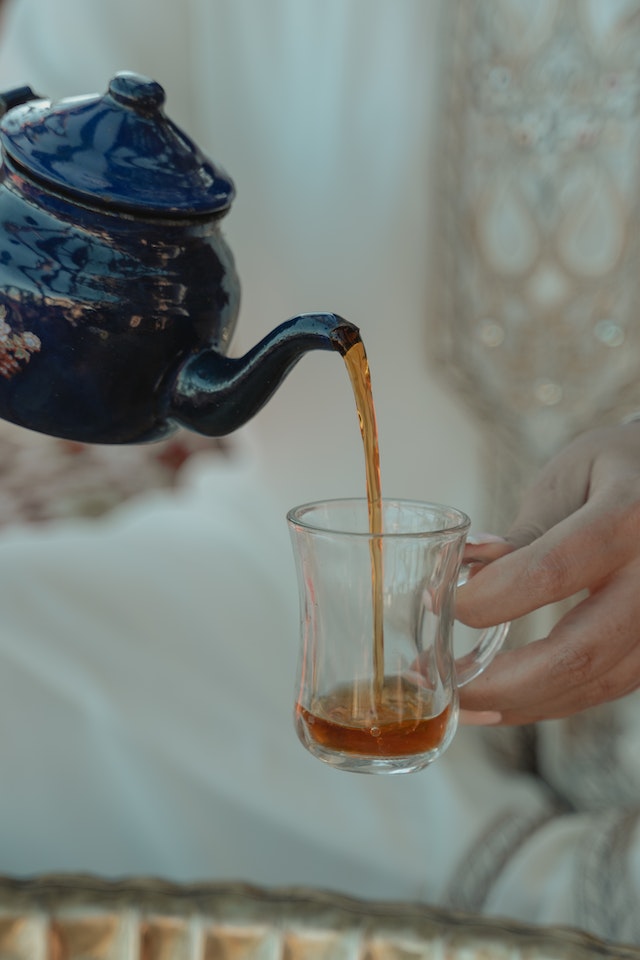
Herbal Teas~ Herbal Remedies for Sinus Pressure
Herbal teas can be a comforting way to relieve sinus pressure. Some teas that may be particularly helpful include:
- Ginger tea: Ginger has anti-inflammatory properties that may help reduce sinus pressure. It can be brewed fresh or using ginger tea bags.
- Peppermint tea: Like peppermint oil, peppermint tea can have a cooling effect that may help relieve sinus pressure.
- Eucalyptus tea: Eucalyptus tea can be made by steeping fresh or dried eucalyptus leaves in hot water. It may help reduce inflammation and clear congestion.
Other Natural Remedies~ Herbal Remedies for Sinus Pressure
In addition to essential oils and herbal teas, there are several other natural remedies that may help relieve sinus pressure. These include:
- Apple cider vinegar: Apple cider vinegar has antimicrobial properties that may help fight off sinus infections. It can be mixed with water and used as a nasal rinse.
- Grapefruit seed extract: Grapefruit seed extract has antibacterial and antifungal properties that may help relieve sinus pressure. It can be mixed with water and used as a nasal rinse or added to a humidifier.
- Steam inhalation: Inhaling steam can help loosen mucus and relieve sinus pressure. This can be done by filling a bowl with hot water, placing a towel over the head, and inhaling the steam for several minutes.
Overall, herbal remedies can be a safe and effective way to relieve sinus pressure. However, it is important to talk to a healthcare provider before trying any new remedies, especially if you have any underlying health conditions or are taking medications.
Dietary Changes for Sinus Pressure Relief~ Herbal Remedies for Sinus Pressure
Dietary changes can play an important role in managing sinus pressure. Certain foods can trigger inflammation in the sinuses, leading to congestion and discomfort. On the other hand, some foods can help reduce inflammation and provide relief. Here are some dietary changes that may help alleviate sinus pressure:
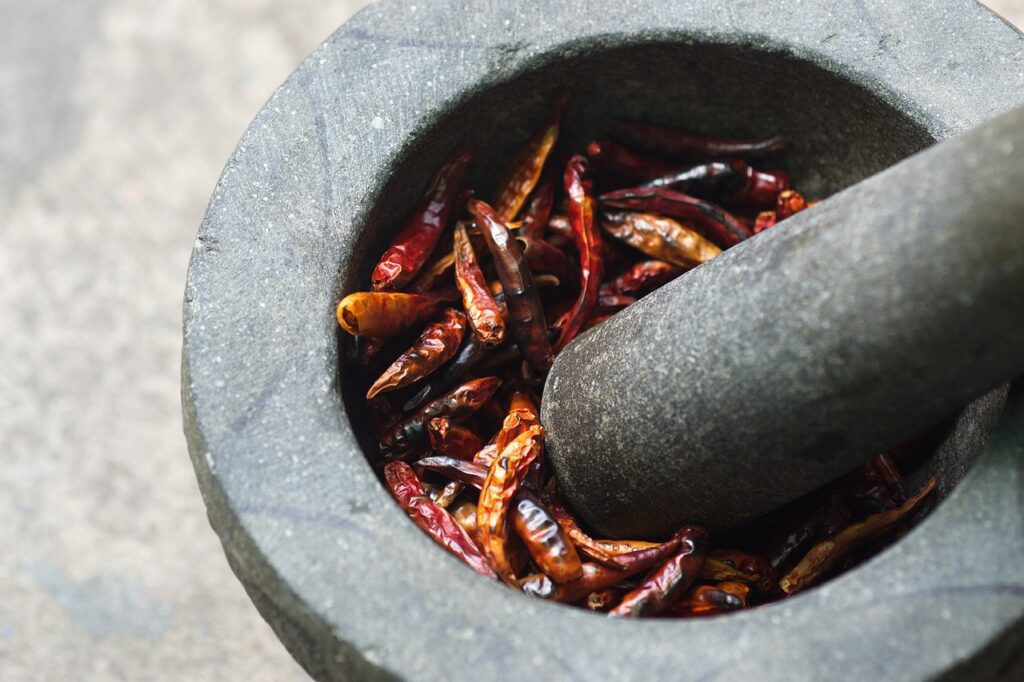
Spicy Foods
Spicy foods such as cayenne pepper contain capsaicin, a compound that can help relieve congestion by thinning mucus and increasing blood flow to the sinuses. However, some people may find that spicy foods irritate their sinuses, so it’s important to listen to your body and avoid any foods that worsen your symptoms.
Vitamin C
Vitamin C is a powerful antioxidant that can help boost the immune system and reduce inflammation. Foods rich in vitamin C include citrus fruits, berries, kiwi, and leafy green vegetables. Incorporating these foods into your diet can help support sinus health and reduce the risk of infections that can lead to sinus pressure.
Dairy Products
Dairy products such as milk and cheese can increase mucus production and exacerbate sinus pressure in some people. If you find that dairy worsens your symptoms, try reducing your intake or switching to non-dairy alternatives such as almond milk or soy cheese.
Hydration
Staying hydrated is important for overall health and can help thin mucus and reduce congestion in the sinuses. Drinking plenty of water and other fluids such as herbal tea or broth can help keep the sinuses moist and reduce discomfort.
Overall, dietary changes can be an effective way to manage sinus pressure. By incorporating anti-inflammatory foods and avoiding triggers such as dairy products, people can help reduce inflammation and alleviate symptoms. However, it’s important to listen to your body and work with a healthcare professional to develop a personalized plan for managing sinus pressure.
Hydration and Sinus Pressure~ Herbal Remedies for Sinus Pressure
Proper hydration is essential for overall health, and it can also help alleviate sinus pressure. When the body is dehydrated, the mucus membranes in the nose and sinuses can become dry and irritated, leading to an increase in sinus pressure.
It is recommended to drink plenty of water throughout the day to keep the body hydrated. The amount of water needed varies depending on factors such as age, weight, and activity level. In general, it is recommended to drink at least eight glasses of water per day.
In addition to drinking plenty of water, using sterile water for nasal irrigation can also help alleviate sinus pressure. Nasal irrigation involves flushing out the sinuses with a saline solution to remove excess mucus and other irritants. Using sterile water helps ensure that the solution is safe and free from harmful bacteria or other contaminants.
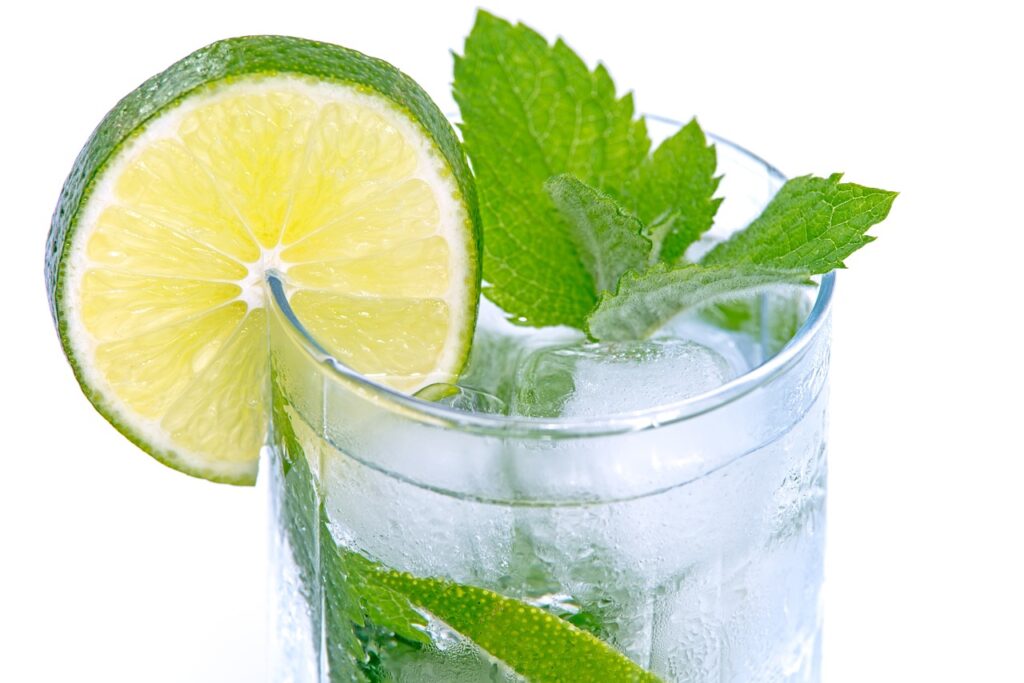
It is important to note that while proper hydration and nasal irrigation can help alleviate sinus pressure, they should not be used as a substitute for medical treatment. If sinus pressure persists or is accompanied by other symptoms such as fever or severe headache, it is important to seek medical attention.
Overall, staying properly hydrated and using sterile water for nasal irrigation can be effective methods for alleviating sinus pressure. By taking these simple steps, individuals can help keep their sinuses healthy and prevent discomfort and irritation.
Steam and Warm Compress Remedies
One of the most common home remedies for sinus pressure is steam therapy. This involves inhaling moist air to help relieve congestion and pressure in the sinuses. There are several ways to do this, such as taking a hot shower or using a pot of water on the stove. Another option is to use a bowl of hot water and a towel to create a steam tent. Simply place your head over the bowl and cover it with the towel, being careful not to get too close to the hot water.
Warm compresses are another effective remedy for sinus pressure. Applying a warm towel or compress to the affected area can help to reduce inflammation and relieve discomfort. To make a warm compress, soak a towel in hot water and wring it out before applying it to the face. Alternatively, a warm, damp washcloth can be placed over the nose and forehead.
Both steam therapy and warm compresses can be used in combination for even greater relief. For example, a warm compress can be applied to the face before or after steam inhalation to help open up the sinuses and promote drainage.
It is important to note that while these remedies can be effective for mild to moderate sinus pressure, they may not be sufficient for more severe cases. If symptoms persist or worsen, it is recommended to seek medical attention.
Nasal Irrigation Techniques~ Herbal Remedies for Sinus Pressure
Nasal irrigation is a technique that involves flushing out the nasal passages with a saline solution to relieve sinus pressure and congestion. This technique is also known as sinus rinses, nasal washes, or nasal douches. It is a natural and effective way to alleviate sinus symptoms caused by allergies, colds, or sinus infections.
There are several ways to perform nasal irrigation, including:
Neti Pot
A neti pot is a small teapot-like vessel that is used to pour the saline solution into one nostril while tilting the head to allow the solution to flow out of the other nostril. It is a traditional Ayurvedic technique that has been used for centuries to treat sinus problems.
To use a neti pot, fill it with warm saline solution, tilt your head to one side, and pour the solution into the upper nostril. The solution will flow through the nasal passages and come out of the lower nostril. Repeat the process on the other side.
Saline Nasal Spray
Saline nasal sprays are pre-made saline solutions that come in a spray bottle. They are easy to use and convenient for those who are on the go. Simply insert the nozzle into one nostril and spray the solution while inhaling gently. Repeat the process on the other side.
Nasal Irrigation Bottle
Nasal irrigation bottles are similar to neti pots but have a more modern design. They have a squeeze bottle that allows you to control the flow of the saline solution and a nozzle that fits comfortably into the nostril.
To use a nasal irrigation bottle, fill it with warm saline solution, tilt your head forward, and insert the nozzle into one nostril. Squeeze the bottle gently to allow the solution to flow through the nasal passages and come out of the other nostril. Repeat the process on the other side.
Sinus Rinse Kit
Sinus rinse kits are available over-the-counter and contain pre-measured packets of saline solution and a squeeze bottle. They are designed to make the process of nasal irrigation easier and more convenient.
To use a sinus rinse kit, mix the contents of the packet with warm water in the squeeze bottle, tilt your head forward, and insert the nozzle into one nostril. Squeeze the bottle gently to allow the solution to flow through the nasal passages and come out of the other nostril. Repeat the process on the other side.
In conclusion, nasal irrigation is a safe and effective way to relieve sinus pressure and congestion caused by allergies, colds, or sinus infections. There are several methods available, including neti pots, saline nasal sprays, nasal irrigation bottles, and sinus rinse kits. It is important to follow the instructions carefully and use a sterile saline solution to avoid any complications.
Preventing Sinus Pressure
Sinus pressure can be a painful and uncomfortable experience. Fortunately, there are several ways to prevent sinus pressure from occurring in the first place.
Keep the Immune System Strong
A strong immune system can help prevent sinus pressure by fighting off infections that can lead to sinusitis. Eating a healthy diet, getting regular exercise, and getting enough sleep are all important ways to keep the immune system strong.
Stay Hydrated with Distilled Water
Drinking plenty of water is important for preventing sinus pressure. Distilled water is the best choice because it is free of impurities that can irritate the sinuses. It is recommended to drink at least eight glasses of distilled water per day to stay hydrated.
Avoid Dry Air
Dry air can irritate the sinuses and lead to sinus pressure. Using a humidifier can help add moisture to the air and prevent dryness. It is also important to avoid spending too much time in dry environments, such as air-conditioned rooms.
Identify and Avoid Allergic Reactions
Allergic reactions can cause sinus pressure by inflaming the sinuses. Identifying and avoiding allergens can help prevent allergic reactions. Using an air purifier can also help remove allergens from the air.
Boost White Blood Cells
White blood cells help fight infections that can lead to sinus pressure. Eating foods that are high in vitamin C, such as citrus fruits and broccoli, can help boost white blood cell production.
Promote Healthy Blood Vessels
Healthy blood vessels can help prevent sinus pressure by promoting proper blood flow. Eating foods that are high in vitamin E, such as nuts and seeds, can help promote healthy blood vessels.
Maintain Room Temperature
Extreme temperatures can irritate the sinuses and lead to sinus pressure. It is important to maintain a comfortable room temperature to prevent sinus pressure.
When to Seek Medical Attention
While herbal remedies can be effective in treating sinus pressure, there are times when it’s necessary to seek medical attention. If you experience any of the following symptoms, it’s important to consult with a healthcare provider:
- Severe or persistent facial pain
- High fever
- Ear pain or discharge
- Severe headache
- Vision changes
- Confusion or altered mental state
- Stiff neck
- Shortness of breath
- Chest pain
In addition, if you have a sore throat that lasts more than a week, it’s important to see a healthcare provider to rule out any underlying infections such as strep throat.
If you are taking any pain relievers or other medications to manage your sinus pressure, it’s important to be aware of the potential side effects. Some pain relievers, such as aspirin, can increase the risk of bleeding and should not be taken if you have any bleeding disorders or are taking blood-thinning medications.
It’s also important to be aware that while herbal remedies can be effective in treating sinus pressure, they may not be appropriate for everyone. If you have any underlying health conditions or are taking any medications, it’s important to talk to your healthcare provider before using any herbal remedies.
In summary, if you experience severe or persistent symptoms, it’s important to seek medical attention. While herbal remedies can be effective in treating sinus pressure, they may not be appropriate for everyone and it’s important to talk to your healthcare provider before using any new treatments.
Conclusion
In conclusion, herbal remedies can be a useful addition to traditional treatments for sinus pressure. The systematic review and network meta-analysis conducted by Huang et al. (2023) found that herbal medicine taken orally combined with herbal medicine or saline through nasal cavities had better efficacy in treating sinusitis than other treatments. However, more research is needed to determine the safety and efficacy of specific herbal remedies for sinus pressure.
A systematic review conducted by Wang et al. (2006) found evidence that certain herbal medicines, such as Xanthium sibiricum, Angelica dahurica, and Bi Yuan Shu, may be effective in treating sinusitis. However, the review also noted that more research is needed to determine the safety of these herbal medicines.
It is important to note that while herbal remedies may be effective in treating sinus pressure, they should not be used as a substitute for medical treatment. If symptoms persist or worsen, individuals should seek medical attention. Additionally, individuals should consult with a healthcare provider before using any herbal remedies, as some may interact with prescription medications or have adverse effects.
Overall, herbal remedies can be a useful addition to traditional treatments for sinus pressure, but more research is needed to determine their safety and efficacy. Individuals should consult with a healthcare provider before using any herbal remedies and should not use them as a substitute for medical treatment.



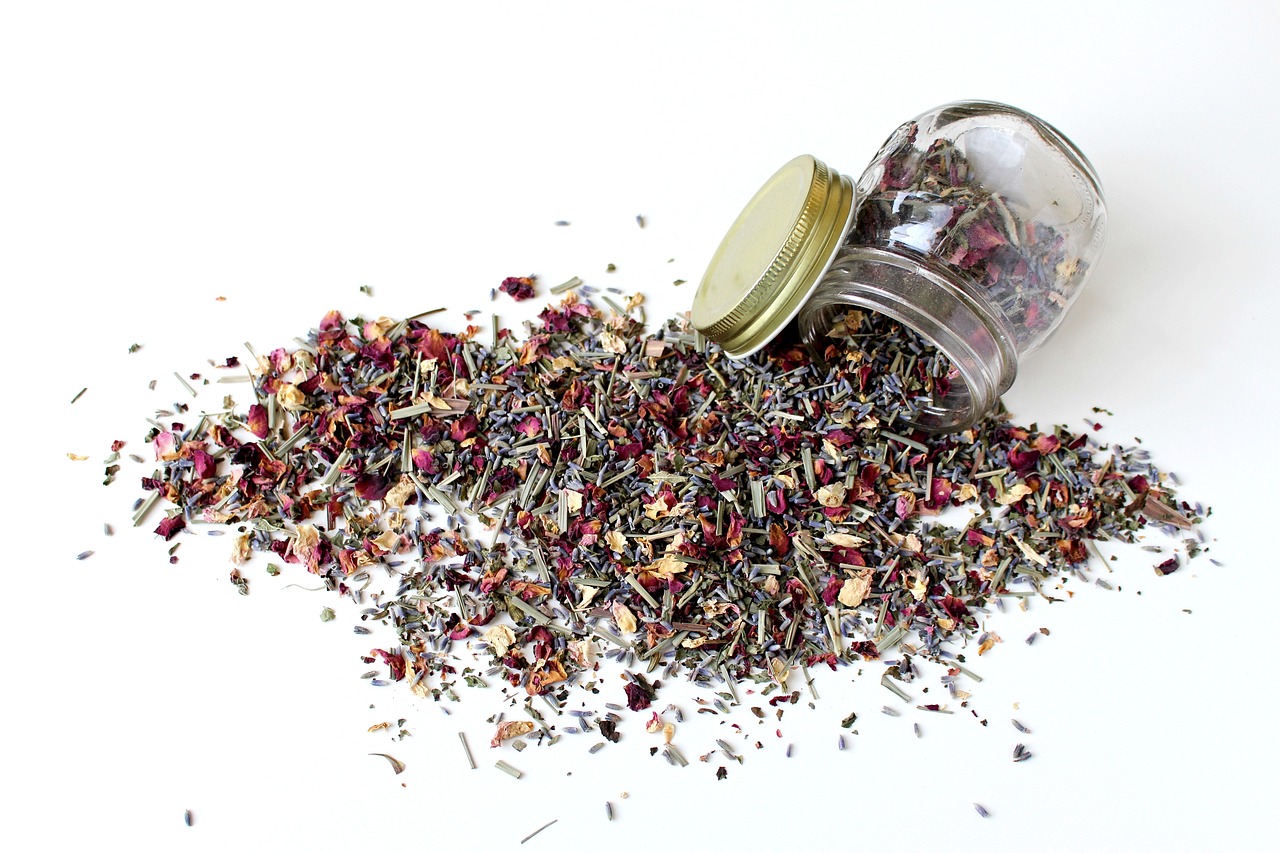



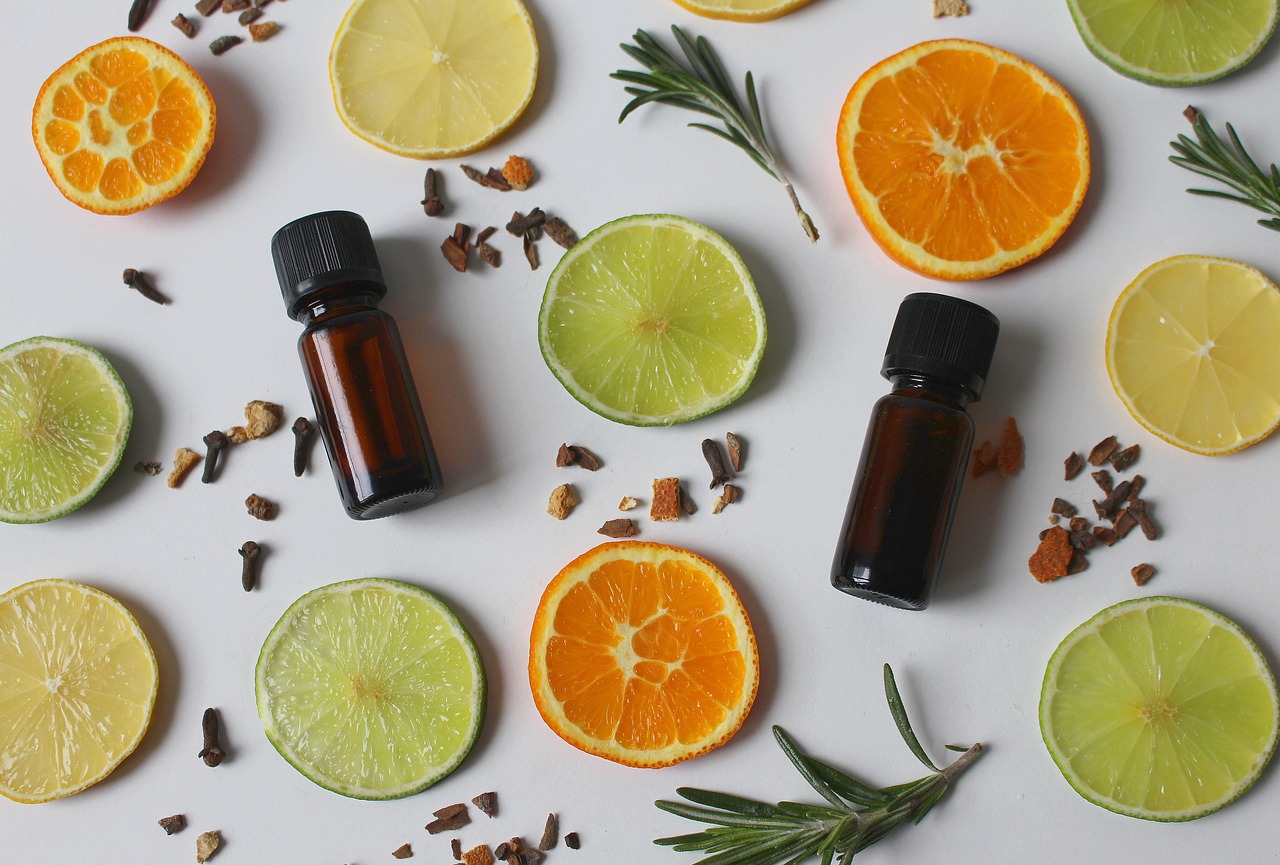
One comment on “Herbal Remedies for Sinus Pressure: Natural Relief for Congestion and Pain”